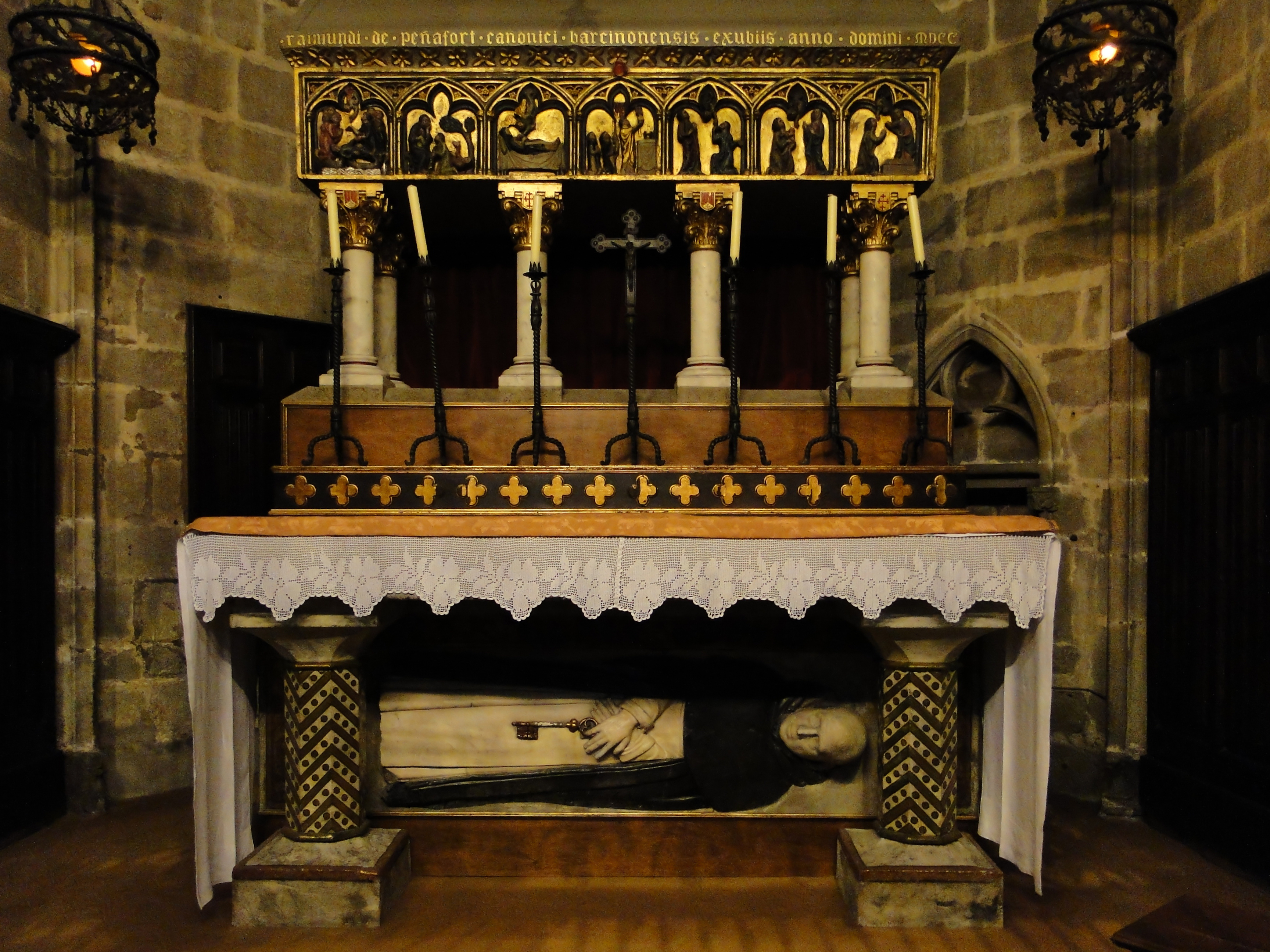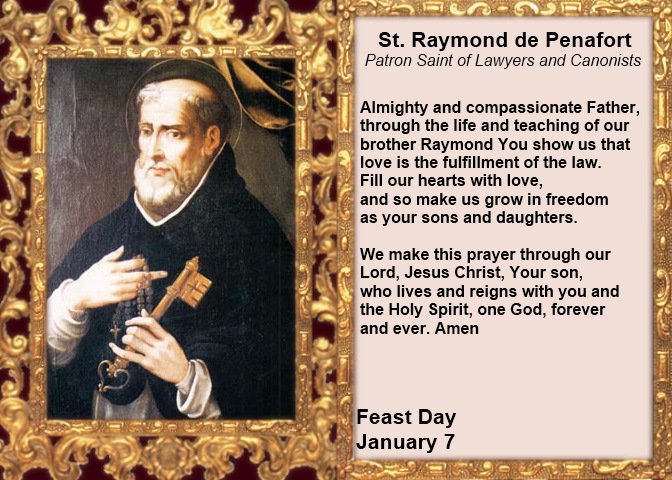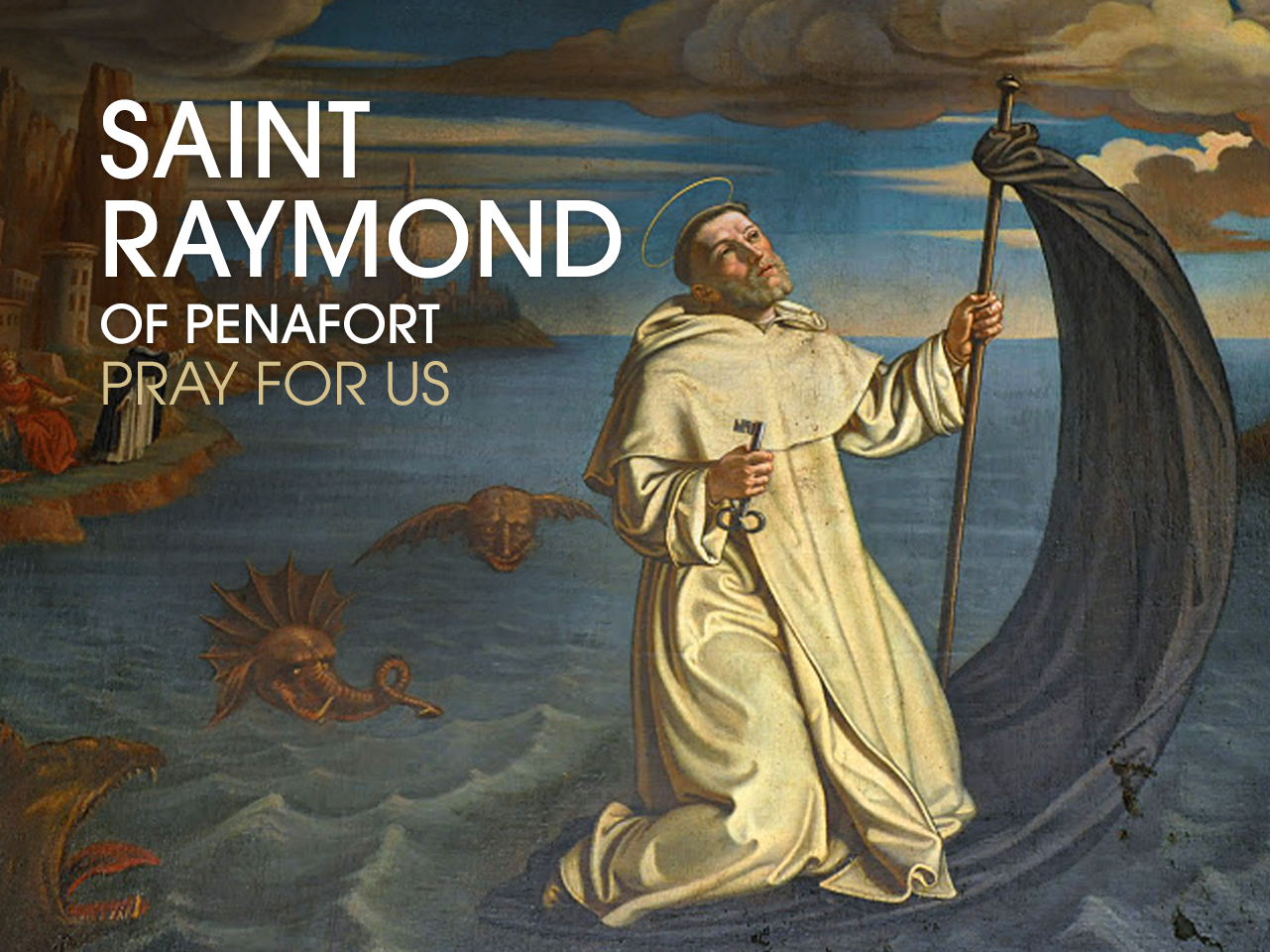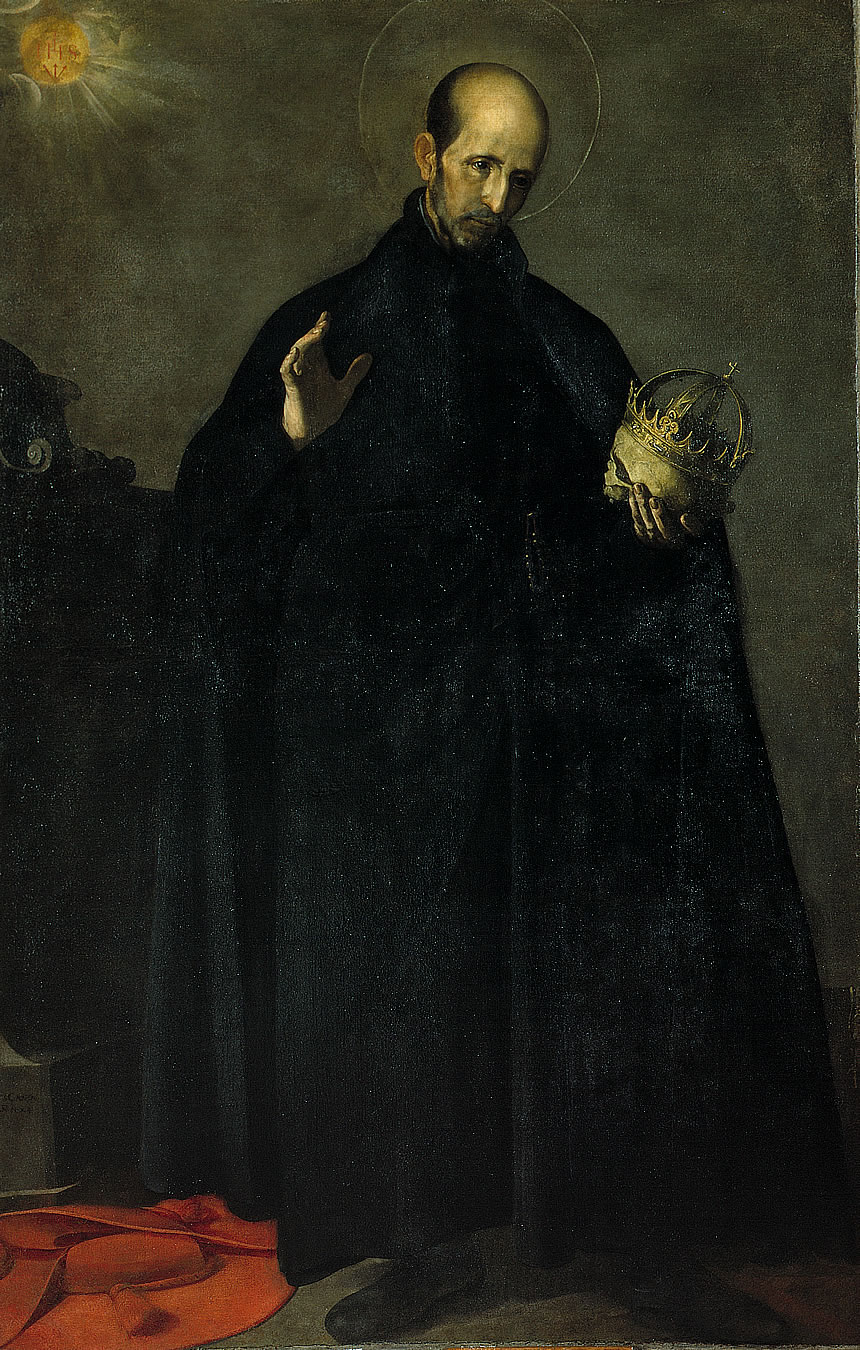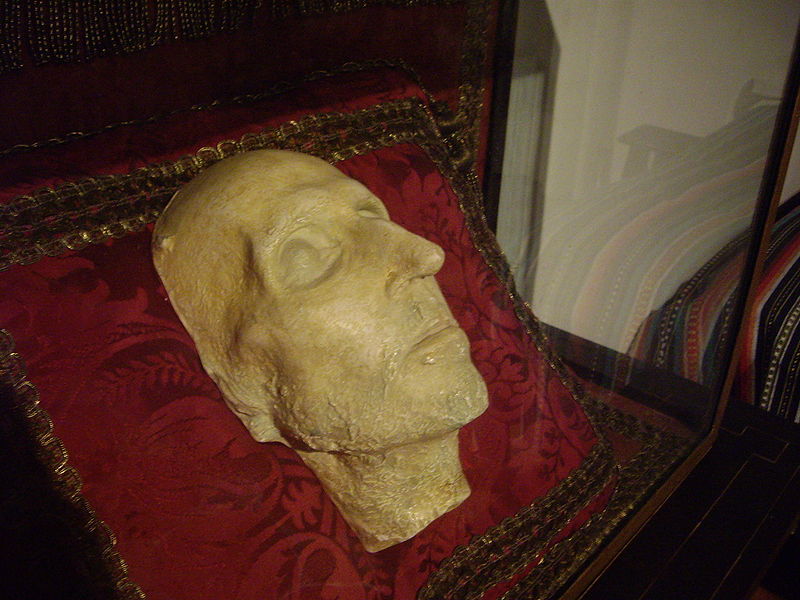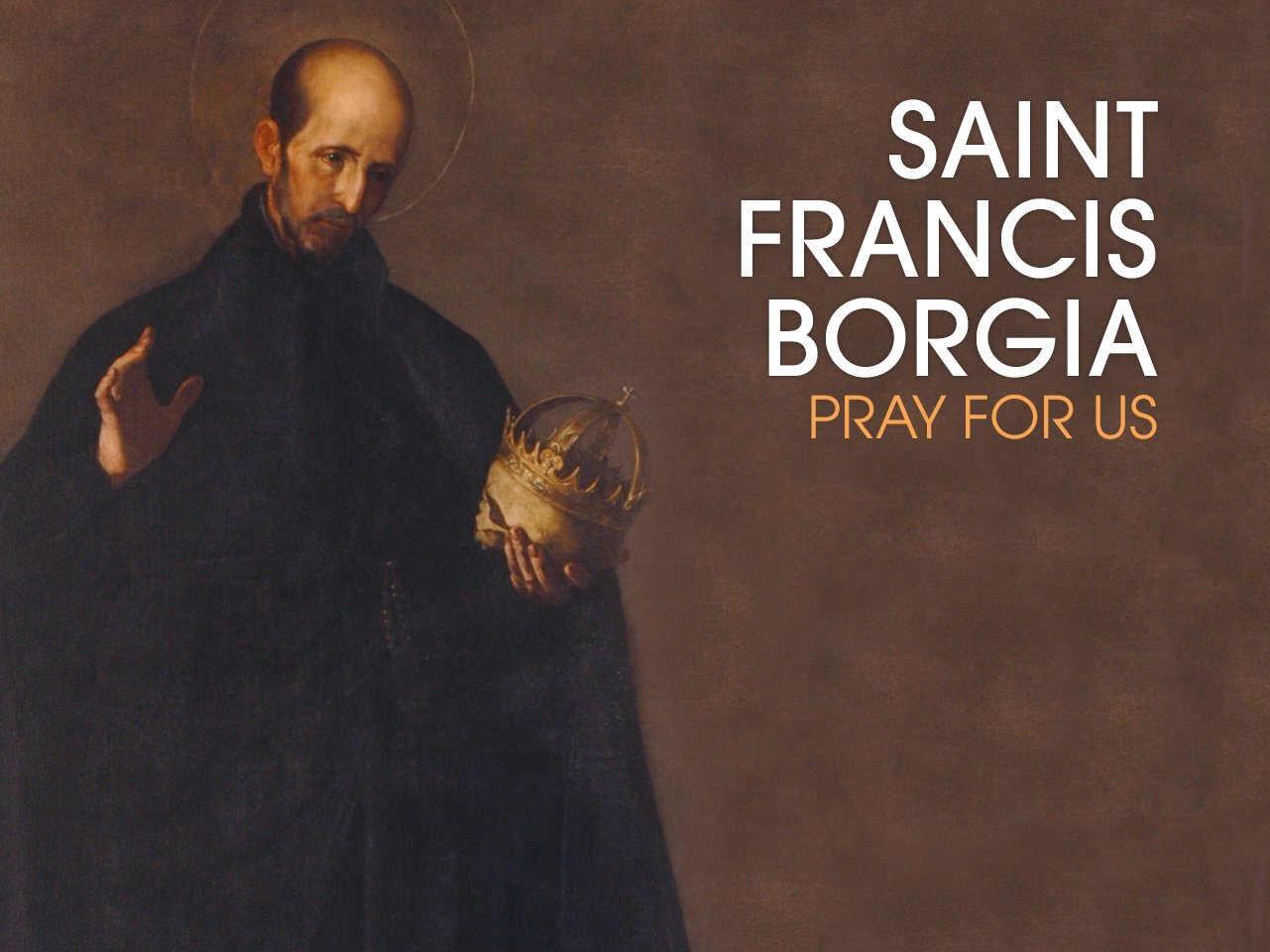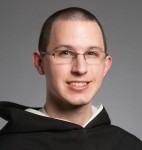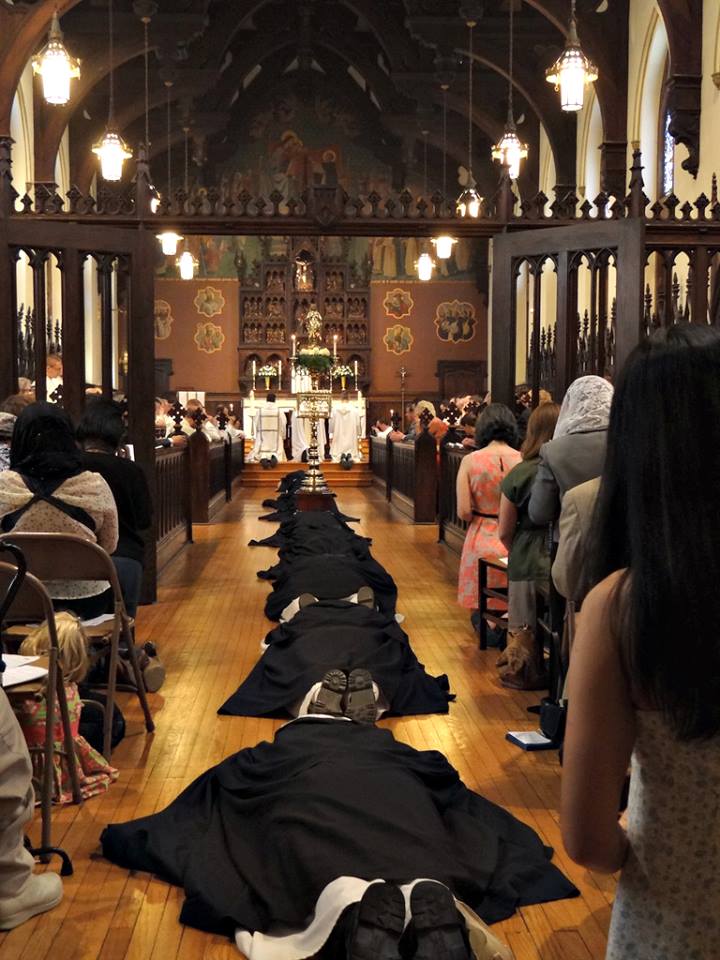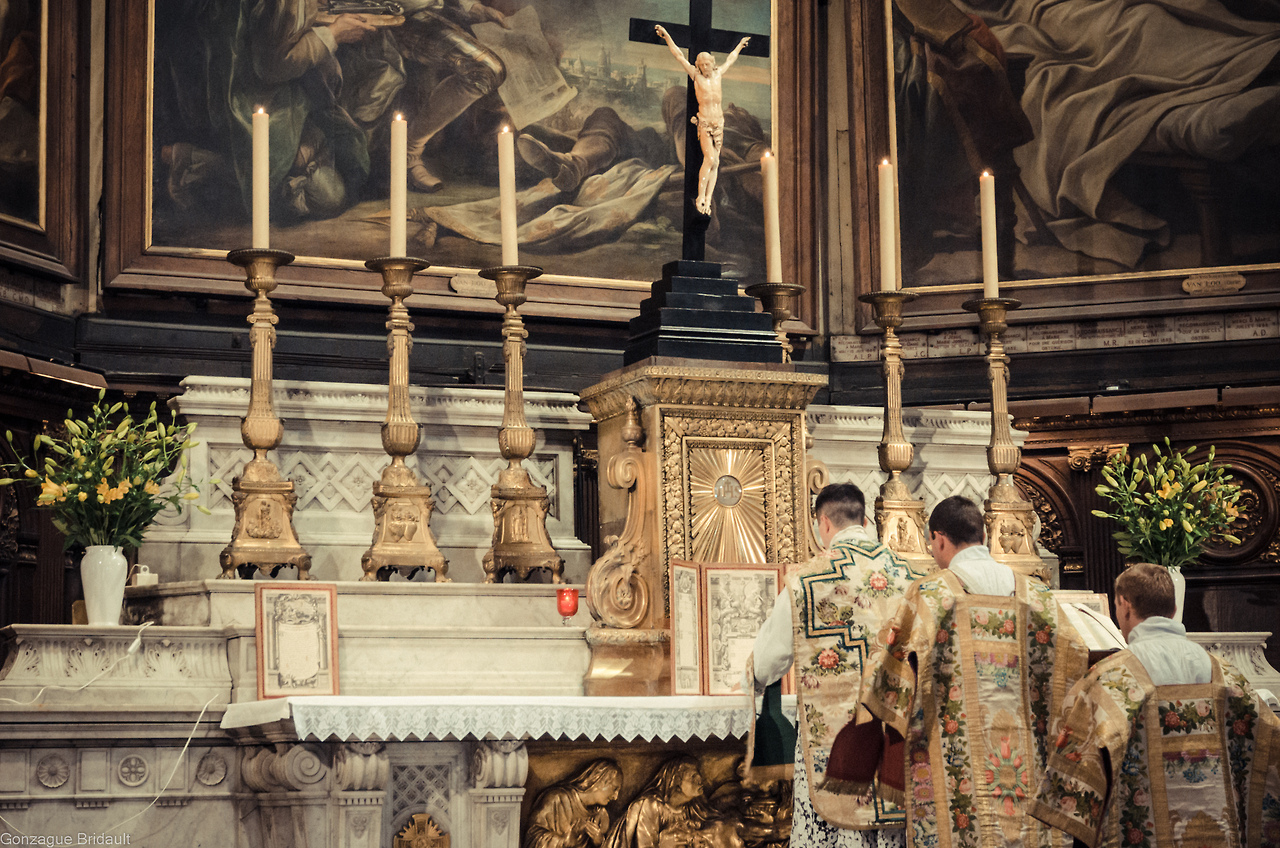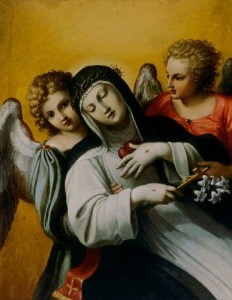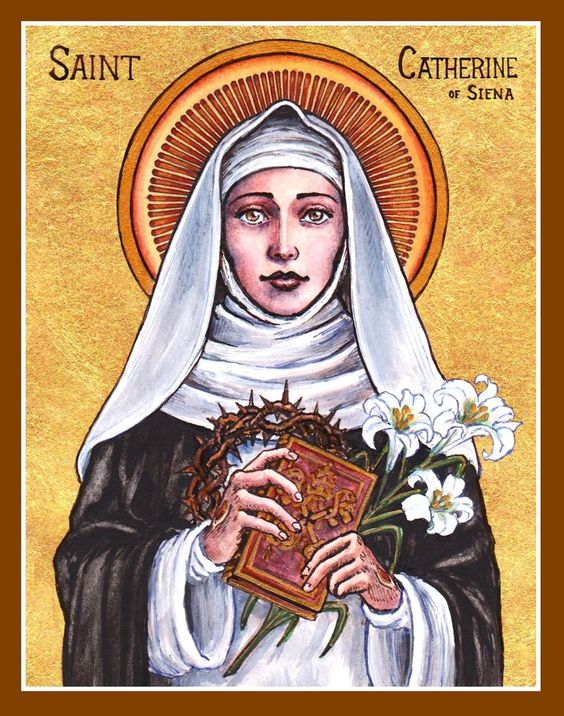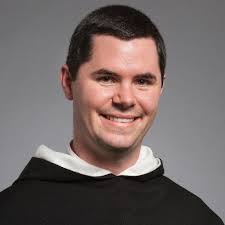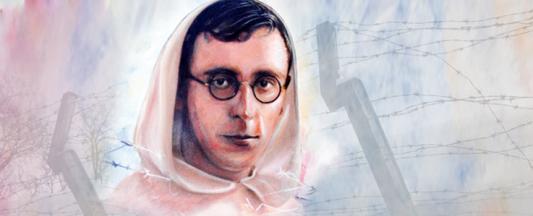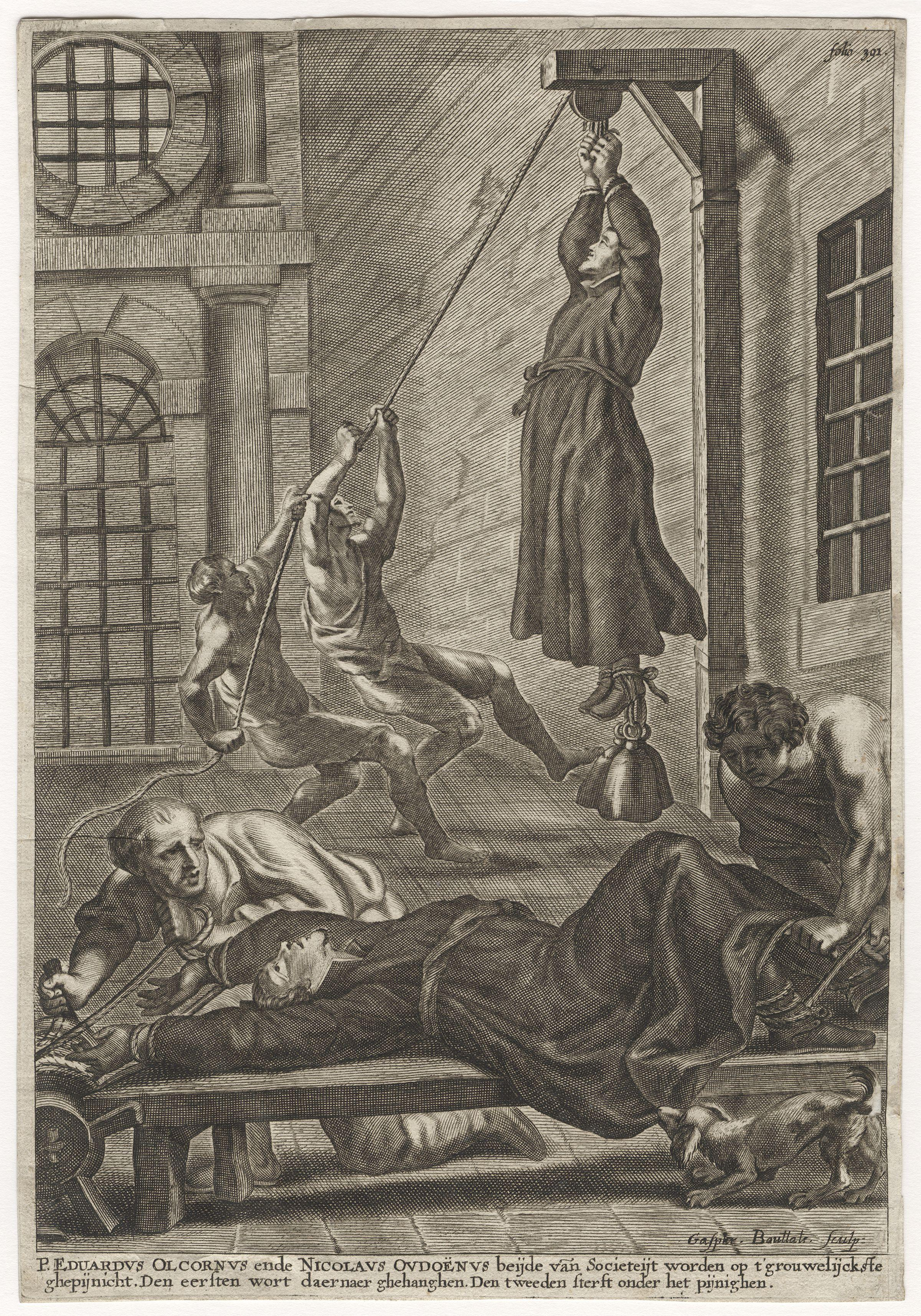“Love is the fulfillment of the law.” -Rm 13:10
Saint Raymond of Penafort, OP, a Dominican priest who worked to aid Christian captives during the era of the Crusades and also helped organize the Church’s legal code, is celebrated liturgically on Jan. 7.
A contemporary of Saint Thomas Aquinas, he inspired the theologian to write the “Summa Contra Gentiles” for the conversion of non-Catholics. At least 10,000 Muslims reportedly converted as a result of St. Raymond’s evangelistic labors.
Descended from a noble family with ties to the royal house of Aragon, Raymond of Penafort was born during 1175 in the Catalonian region of modern-day Spain.
He advanced quickly in his studies, showing such a gift for philosophy that he was appointed to teach the subject in Barcelona by age 20. As a teacher, the young man worked to harmonize reason with the profession and practice of Catholic faith and morals. This included a notable concern for the poor and suffering.
Around age 30 the Spanish scholar went to study secular and Church law at Bologna in Italy. He earned his doctorate and taught there until 1219, when the Bishop of Barcelona gave him an official position in the diocese. During 1222, the 47-year-old Raymond joined the Dominican order, in which he would spend the next 53 years of his remarkably long life.
As a penance for the intellectual pride he had once demonstrated, the former professor was asked to write a manual of moral theology for use by confessors. The resulting “Summa Casuum” was the first of his pioneering contributions to the Church. This work is especially noted because it gives guidance as to how the sacrament of Penance may be administered justly and with benefit to the penitent. Meanwhile, in keeping with his order’s dedication to preaching, the Dominican priest strove to spread the faith and bring back lapsed and lost members of the Church.
During his time in Barcelona, Raymond helped Saint Peter Nolasco and King James of Aragon to establish the Order of Our Lady of Mercy, whose members sought to ransom those taken captive in Muslim territory. During this same period Raymond promoted the Crusades through preaching, encouraging the faithful to defend their civilization from foreign threats.
Pope Gregory IX called the Dominican priest to Rome in 1230, asking him to compile the Church’s various decisions and decrees into one systematic and uniform collection, which, when he started, was nothing better than a chaotic accumulation of isolated decrees. The fruit of his work was the papal bull Rex Pacificus (1234) and the papal declaration that only Raymond’s collection should be considered authoritative within the whole Church. The resulting five books served for centuries as a basis of the Church’s internal legal system. Raymond was the Pope’s personal confessor and close adviser during this time, and nearly became the Archbishop of Tarragona in 1235. But the Dominican did not want to lead the archdiocese, and is said to have turned down the appointment.
Later in the decade, Raymond was chosen to lead the Dominicans, though he did so for only two years due to his advancing age. Ironically, however, he would live on for more than three decades after resigning from this post. During this time he was able to focus on the fundamentals of his vocation: praising God in prayer, making him known through preaching, and making his blessings manifest in the world. Raymond’s later achievements included the establishment of language schools to aid in the evangelization of non-Christians.
St. Raymond of Penafort’s long pilgrimage of faith ended on Jan. 6, 1275, approximately 100 years after his birth. Pope Clement VIII canonized him in 1601. His patronage extends toward lawyers in general, and canon lawyers in particular.
-tomb of St Raymond of Penafort, OP
Legalism can suck the life out of genuine religion if it becomes too great a preoccupation with the letter of the law to the neglect of the spirit and purpose of the law. The law can become an end in itself, so that the value the law was intended to promote is overlooked.
But, we must guard against going to the opposite extreme and seeing law as useless or something to be lightly regarded. Laws ideally state those things that are for the best interests of everyone and make sure the rights of all are safeguarded. From Raymond, we can learn a respect for law as a means of serving the common good.
“Look then on Jesus, the Author and Preserver of faith: in complete sinlessness He suffered, and at the hands of those who were His own, and was numbered among the wicked. As you drink the cup of the Lord Jesus (how glorious it is!), give thanks to the Lord, the giver of all blessings. May the God of love and peace set your hearts at rest and speed you on your journey; may He meanwhile shelter you from disturbance by others in the hidden recesses of His love, until He brings you at last into that place of complete plenitude where you will repose for ever in the vision of peace, in the security of trust, and in the restful enjoyment of His riches.” – from a letter by Saint Raymond
Prayer
Prelates, Kings, and people of the earth!!!! Celebrate the glorious name of Raymond, to whom the salvation of all mankind was an object of loving care.
His pure and spotless life reflected all the marvels of the mystic life; and the light of every virtue shines brightly forth in him.
With admirable study and research, he collects together the scattered Decrees of the Sovereign Pontiffs, and all the sacred maxims of the ancient Canons, so worthy to be handed down to all ages.
He bids the treacherous sea be firm, and on her open waters carry him to land; he spreads his mantle, and his staff the mast, he rides upon the waves. Amen.
O redeemer of captive slaves,
those enslaved to sin
and those enslaved
by the clutches of the world –
preach to us this day
the freedom found
under the Cross of Christ
and in the repentance of heart
blessed by the grace
upon the Church.
Teach us well
the path to Heaven,
which is wrought not in comfort and peace
but in struggle against sin,
in the laying down of our lives
before our persecutors.
Ransom us from wayward
thoughts and actions,
and from the snares
of the adversary
who waits for our misstep.
In Christ alone
may we find our rest. Amen.
O most holy and lovable St. Raymond, you were born into a wealthy and noble family, and acknowledged patron of those who seek for enlightenment. We come to you to seek your help in the name of our Blessed Mother, for you have been endowed with a brilliant mind and magnificent wisdom.
Many people are torn into confusion between knowledge and spirit. They seek your help, now that you are with the heavenly Father. We, too, seek your assistance for our confusion in mind and spirit. We ask especially for enlightenment for this/these particular intention/s (mention your request here). O Lord, we humbly ask to grant our prayers during this novena so that we may be worthy to imitate the virtues of St. Raymond and inspire sinners to return to you. Amen.
O God, Who didst choose blessed Raymond to be eminent as a minister of the Sacrament of Penance and didst lead him in wondrous wise upon the waves of the sea: grant that by his intercession we may be able to bring forth worthy fruits of penance, and to reach the port of everlasting salvation. Through our Lord. Amen.
Love,
Matthew

